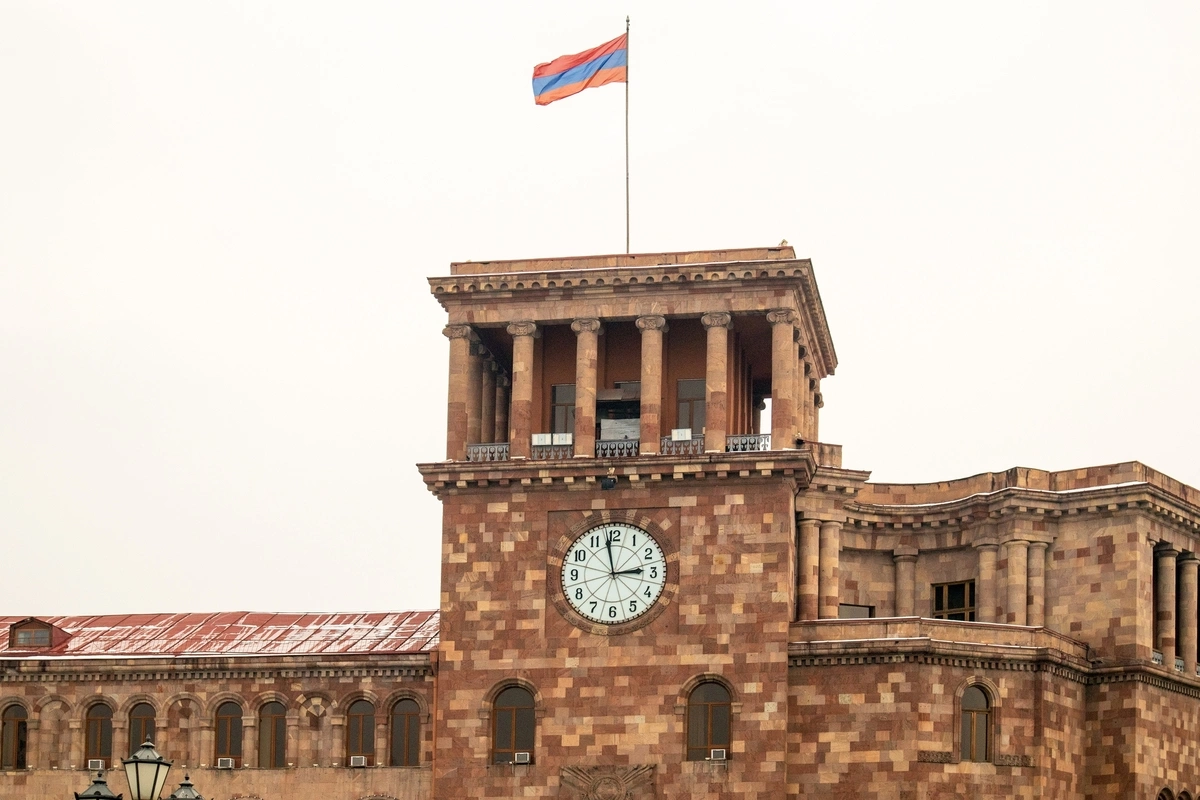
Amid mounting pressure to reach a peace agreement with Azerbaijan, Armenian PM Nikol Pashinyan’s renewed focus on constitutional reform has raised suspicions that he is yielding to Baku’s demands. Government officials deny this, instead claiming that reform is necessary to restore public trust in a constitution largely discredited by previous regimes.
Image: Roninnw/Shutterstock
In recent weeks, as the South Caucasus entered the new year, indications suggest that the region could be on the verge of a pivotal turning point in normalizing relations between Armenia and Azerbaijan. All signs are that Prime Minister Nikol Pashinyan could be ready to change the country’s constitution to find peace. So far, it has not been officially denied, though constitutional reform was already on the agenda before the recent war; several official statements support the belief that Yerevan could be ready to acquiesceto what critics say are demands from Baku to remove any territorial claims on Azerbaijan within the document.
In particular, reference to the 1990 Declaration of Independence as a preamble to the existing constitution introduced in 1995 also includes the 1989 joint decision on the “Reunification of the Armenian SSR and the Mountainous Region of Karabakh,” arguably a moot point considering last year’s exodus of the ethnic Armenian population from, what is internationally recognized as, sovereign Azerbaijani territory. Speaking last week, Azerbaijani President Ilham Aliyev even announced that Yerevan was expected to remove that reference if a long-awaited agreement to end the three-decades-long conflict between the sides was to end.
For Azerbaijan, this is considered necessary to guarantee that any potential territorial claims in the future are minimized or nullified in the present. For Armenia, this would mark a significant paradigm shift in its very existence.
Despite criticism from local analysts and political forces, Foreign Minister Ararat Mirzoyan has confirmed that this issue had been brought up in negotiations but stopped short of confirming claims that Yerevan had succumbed under duress to Baku’s demands. On 18 January, visiting the Armenian Ministry of Justice, Pashinyan also declared that Armenia didn’t just need to amend the existing constitution, but that it needed a new one to adjust to “new geopolitical conditions.”
This was also not the first time he had referred to the issue. He was particularly outspoken in a statement to mark the anniversary of the Declaration of Independence last year. “Before the 2020 war and especially after […], I read the text of the declaration many times, and I must admit that my post-war readings are somewhat different from pre-war readings,” he said. “Analysis of the text of the Declaration shows that […] it is about the confrontational narrative […] that kept us in constant conflicts with our neighbours.”
In May 2022, Pashinyan also questioned the logic of including Mount Ararat (Agri) in neighbouring Türkiye on the landlocked nation’s official coat of arms, among other symbols that the Ministry of Foreign Affairs says represent “historical Armenia.” Last month, Parliamentary Speaker Alen Simonyan also raised an issue with the coat of arms as well as the national anthem.
Even so, there are other reasons why overhauling the constitution could be on the cards. Controversially amended under Pashinyan’s predecessors, Robert Kocharyan and Serzh Sargsyan, the constitution has little relevance to most Armenians who instead remember when Sargsyan amended it in 2015 to rule as prime minister once his second and final term as president ended in 2018. Ironically, that instead sparked the street protests that brought Pashinyan to power the same year. It is also possible that the new administration again sees that it can be used for similar purposes.
Indeed, in early 2020, Pashinyan had planned to hold a referendum to change the constitution to rid the Constitutional Court of judges appointed under Kocharyan and Sargsyan. The pandemic put that on hold, although parliament did change the law to push that particular amendment through. The actual referendum was rescheduled for the following year and continued to sit in limbo when snap-elections were instead held in June 2021 in the aftermath of the 2020 war. But following last year’s relatively poor showing in Yerevan’s municipal elections, the issue is relevant again, with Pashinyan now saying that minority government rule should be possible.
For some observers, both sound enticing for the prime minister amid declining support before parliamentary elections currently scheduled for 2026. If the changes were to pass, it would resolve two issues facing him—the likely obstacle to a peace agreement and the longevity of his current grip on power. Though some analysts believe the electorate would reject such changes, others disagree. In an environment the diametric opposite of that in which Armenia’s first president, Levon Ter-Petrosyan, was forced to resign after unsuccessfully posing the same question in 1997, it would be quite simple…
War or Peace?
Share on social media